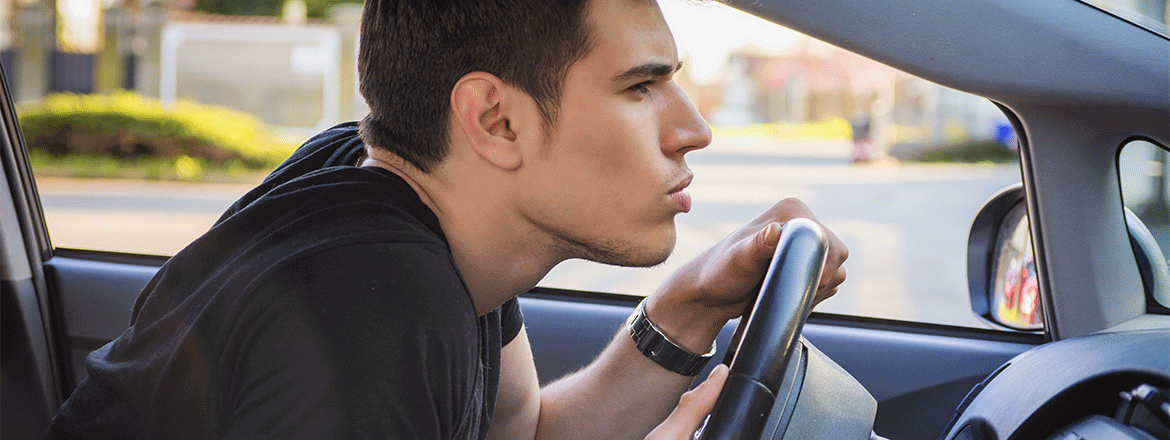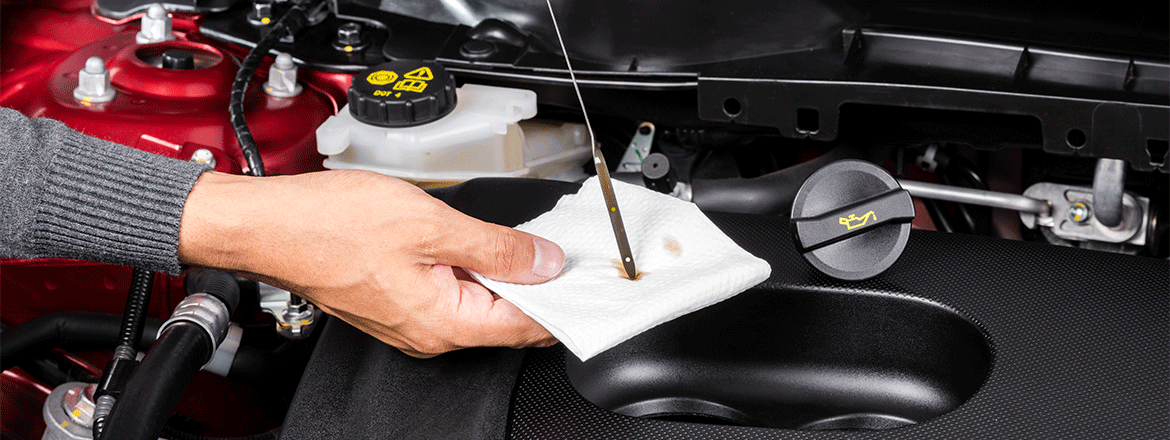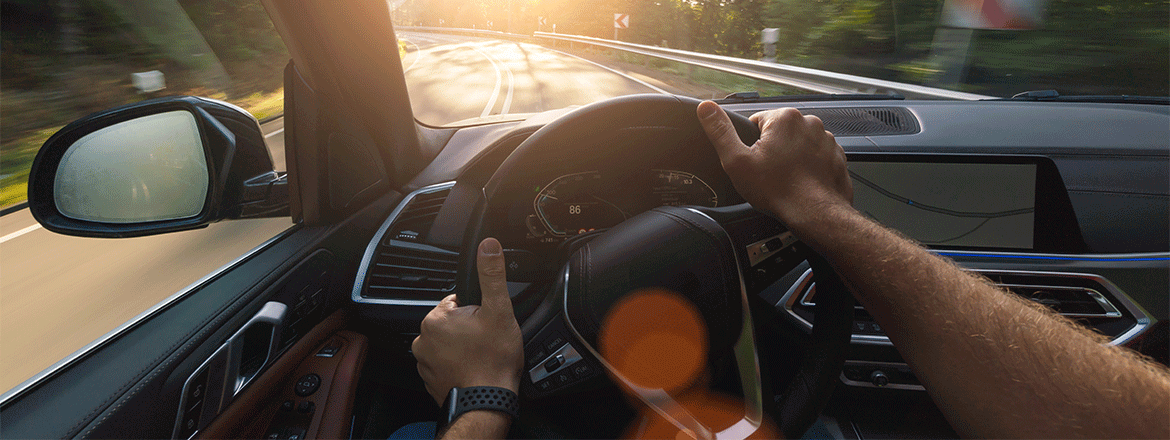Hear anything strange? Here is what your car is telling you

You are probably already familiar with the sounds your car usually makes. But what to do when strange sounds appear? In this article, we will try to explain to what kind of malfunction or nuisance a certain sound might imply.
SOUNDS COMING FROM THE ENGINE AREA
When starting the engine
Click followed by extended cranking, with the impossibility of starting the car: It may be that the battery voltage has dropped below 9.5V and therefore the electronic control unit (ECU) has not received a signal that it can start working. If the battery is new, it is most likely that the problem is with the starter, a Bendix in the starter, or an automatic starter. It is best to refer to a car electrician, and don’t forget to check the battery terminals in case there is a loss of contact.

When is the right time to replace your car battery?
Short-term cracking under the hood after starting the engine: It's probably a solenoid starter. When the solenoid starter weakens, after starting the engine and removing the key from the starter position, it receives a command to stop the function and retreat to a position where it doesn't touch the gear. The cracking appears due to a delayed reaction. It is recommended to visit the electrician.
While the engine is idling
Chirping sound from the engine compartment while the car is idle, which disappears when you depress the clutch: The problem is most likely in the element called the throwout bearing. When the parts of the throwout bearing that rotate (balls, rollers, grease) are worn out, the first thing that is heard is a slight "squealing" or "chirping" sound, which stops once you press the clutch. The advice is to visit a service technician who will replace the throwout bearing, and at the same time check the condition of the diaphragm spring, basket and clutch plates.
The engine idles loudly: If it’s an older-generation vehicle, a technician should check the compression in each of the cylinders.
An offbeat rhythm while the engine idles: Turn it off and try to define the issue by following these steps, bearing in mind that this primarily applies to older-generation cars.
- Check if the cables that lead to the spark plugs are damaged or disconnected.
- By removing one by one, check if the spark plugs are clean and properly gapped. Change the ones that are damaged or burned out.
- If it’s not the spark plugs that cause the problem, have your mechanic check the ignition system electronically.
Rhythmic ticking in the upper part of the engine while the car idles: It's possible that your oil level is low. Turn off the engine, wait for ten minutes for the engine to cool down, then check the oil level. If the oil level is good, you will probably have to have a mechanic check the valves.

The engine oil level should be between minimum and maximum on the dipstick, preferably closer to the maximum.
While driving
Loud, "metal" knocking in your engine: Pull over and call for a car service. This sound may come from a loose rocker arm. However, if the bearing is loose or the piston defective, this can lead to engine failure.
Rhythmic “metal” knocking that accompanies acceleration: this may be caused by using fuel with inadequate octane rating.
You hear a sound that resembles marbles hitting each other, which occasionally occurs while driving: Most likely it is a system for opening and closing the valve, the so-called hydraulic lifters. It is possible that they are worn out and instead of being constantly filled with oil and under pressure, they leak, leading to the creation of gaps larger than allowed. The advice is to have a car mechanic check them and replace them with the new ones.
"Jingling" sound followed by car jerking appearing until you shift to a lower gear: It's about driving at an inappropriate speed. The sound you hear when driving at low revs comes from the vibration of the piston forehead due to poor ignition. So, before the described phenomenon occurs, switch to a lower gear. Failure to do so may lead to piston bursting, causing great damage to the engine.
A loud, deep and monotonous ship-horn-like tone that appears without any noticeable order: It can indicate several things, but we advise you to look for the cause in one of the rotating parts - starter, power steering pump, air conditioner, roller skates, timing belt tensioner, etc. If the problem is in a power steering pump, it might be because it's worn out or the oil has lost its performance. In any case, visit your car mechanic.
Whistling sound coming from under the hood: Check the hoses for leaks. If the whistling sound comes from the cabin, the rubber around the windows is probably leaking.
After turning the engine off
You hear the engine still running after shutting it down: This happens to cars that have carburetors. It is usually caused by poorly regulated ignition.
Whistling sound that stops when you turn off the engine: Adjust or replace the belt. The belt should have an elevation of about 1 cm and must not be frayed, cracked or worn on the inside.
A continuous bleeping sound that can last even after turning off the engine: Check the radiator cap. Maybe the tire on the gasket is worn out.
SOUNDS COMING FROM THE AREA OF WHEELS, SUSPENSION AND BRAKES
Howling sound when braking that comes from the wheel area: If it’s a sound resembling metal leaning against metal, then there’s definitely a problem with the brakes. However, if the mentioned howling is the product of some other deviation on the suspension, it doesn't necessarily mean that it’s coming from the brakes. In any case, check it up with a car mechanic.
Squealing or howling may also indicate a malfunction of the throwout bearing. The most common causes of failure are abrupt release of the clutch pedal and unnecessary holding of the foot on the clutch pedal.

How to make the clutch plate last longer??
Sound resembling hitting metal against metal that appears when crossing bumps: It can come from any element that participates in the front suspension, from stabilizers, silent blocks, shock absorber cups, balance rods, etc. All the mentioned elements contain metal and they can produce this kind of sound due to wear.
Sound of knocking in the wheel area that appears when crossing over uneven surfaces: Check all parts on the front suspension: ball joints, forks, clamp ends, all rubber elements, stabilizers, shock absorber cups, damper cartridges, and see if any spring is broken. Since there is a knocking sound, it means that some air is present. There is a possibility that the defect is masked, so make sure to entrust the car to an experienced car technician. It's especially difficult to check the cups when the car is lifted, which means a slightly more expensive check-up that requires removing and disassembling the complete swivel.
Knocking in the clutch area when the engine is idling and unpleasant kicks in the gearbox area when starting and turning the engine off are just some of the indicators of problems in the power transmission system.
Crackling in the wheel when accelerating, until the desired speed is reached: It can be any element that is located near that wheel: a homokinetic joint, brake calipers, pads, suspension, end of the clamp, end of the lath, etc. Some of these elements vibrate producing a strange sound. In any case, visit the car mechanic.
You hear wailing or a low buzz on curves: In older-generation cars, this is a sign that the wheel bearings are worn out.
You hear squealing as you step on the brake: The brake pads are probably worn. Have them replaced as soon as possible.
The squeaking of the brakes when braking, while brakes work properly: The squeaking sound coming from the brake pads when braking depends on the mixture of materials used for their manufacture. Graphite is the element in the pads that causes squeaking - the more graphite in the pads, the stronger the squeaking. If the brakes are in good condition, there is no reason to worry about.
A metallic sound that appears when braking, along with vibrations, slower deceleration, and a soft brake pedal, is the best sign that something is wrong with the braking system. Visit the car mechanic without any delay.
The tires produce a strange rhythmic sound as you drive: Check how much they are inflated; how much they are worn and if the wheels are balanced.
SOUNDS COMING FROM THE STEERING SYSTEM
Whistling sound when turning the steering wheel, with bouncing steering wheel, unwanted turning, idling, not returning the steering wheel to its original position, jerking or the tendency of the car to "pull aside" when braking, all of that indicates a malfunction of the steering system.

Unpleasant sound and difficult turning may indicate a lack of oil in the power steering.
SOUNDS COMING FROM THE REAR SIDE OF THE CAR
Your car produces an extremely loud sound: It probably has a hole in the muffle. Have it replaced as soon as possible.
You hear clunking coming from under the vehicle, especially when you go over bumps: If the sound comes from the back, you might have a loose tail pipe or muffler.
Wheezing from the exhaust pipe when the car is idle: You should check the complete exhaust system, from the engine to the rear bumper and see if the bulkhead in one of the pots fell off, or if the car "settled" somewhere and flattened the pipe. Basically, for some reason, there is a clog in the system, which is probably the reason why you hear the hissing.
"Gurgling" in the tank while driving: The vacuum, that is bubbling and a sound similar to "gurgling", occurs when the air can't pass through the overflow valve. This refers to the problem in the filling hose, i.e. the fuel filling system. If the hose is clogged and there is no possibility for the air to replace the used gasoline, a vacuum or "gurgling" occurs.
Please note that the explanations provided in this article are of general character and that you will need to consult your mechanic for precise diagnostics. If you find this article prepared by the TotalEnergies helpful, BE SURE to check out other interesting and useful content we recommend. Feel free to contact us if you have any questions, concerns, or suggestions.




